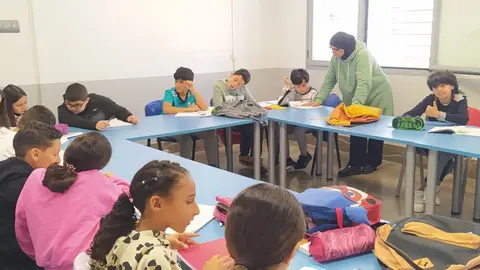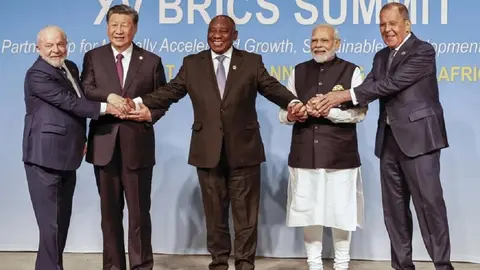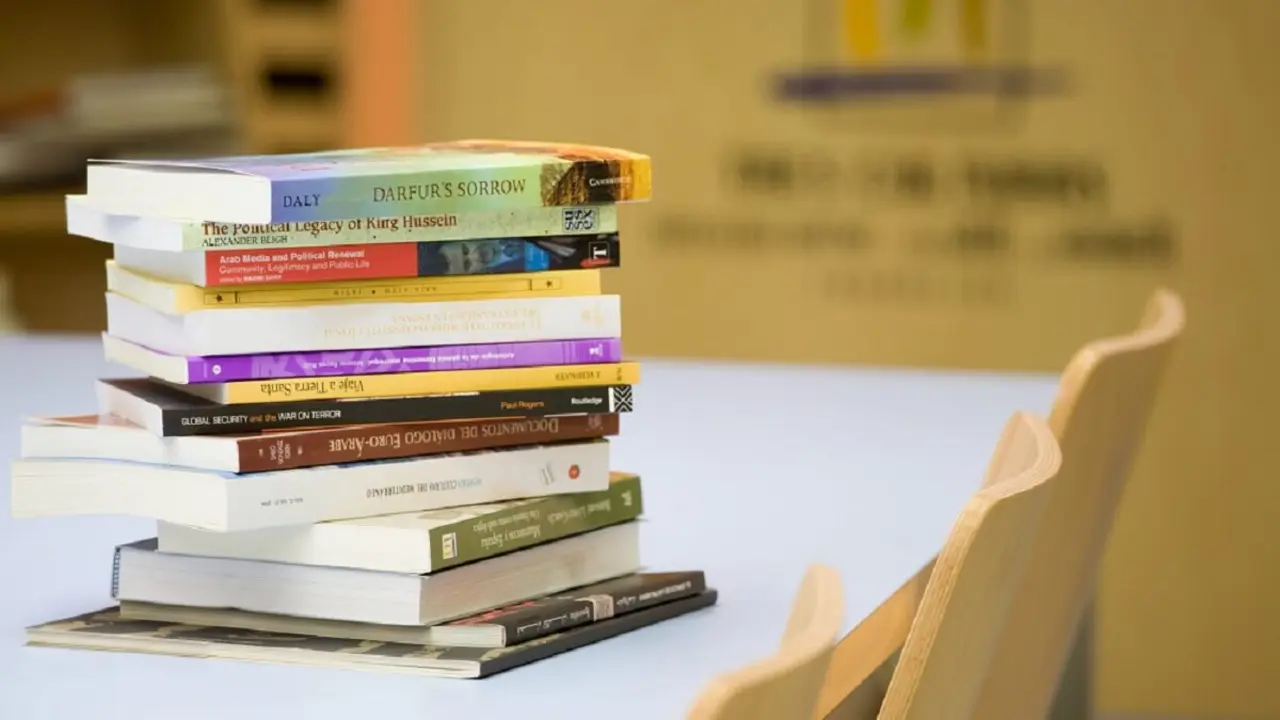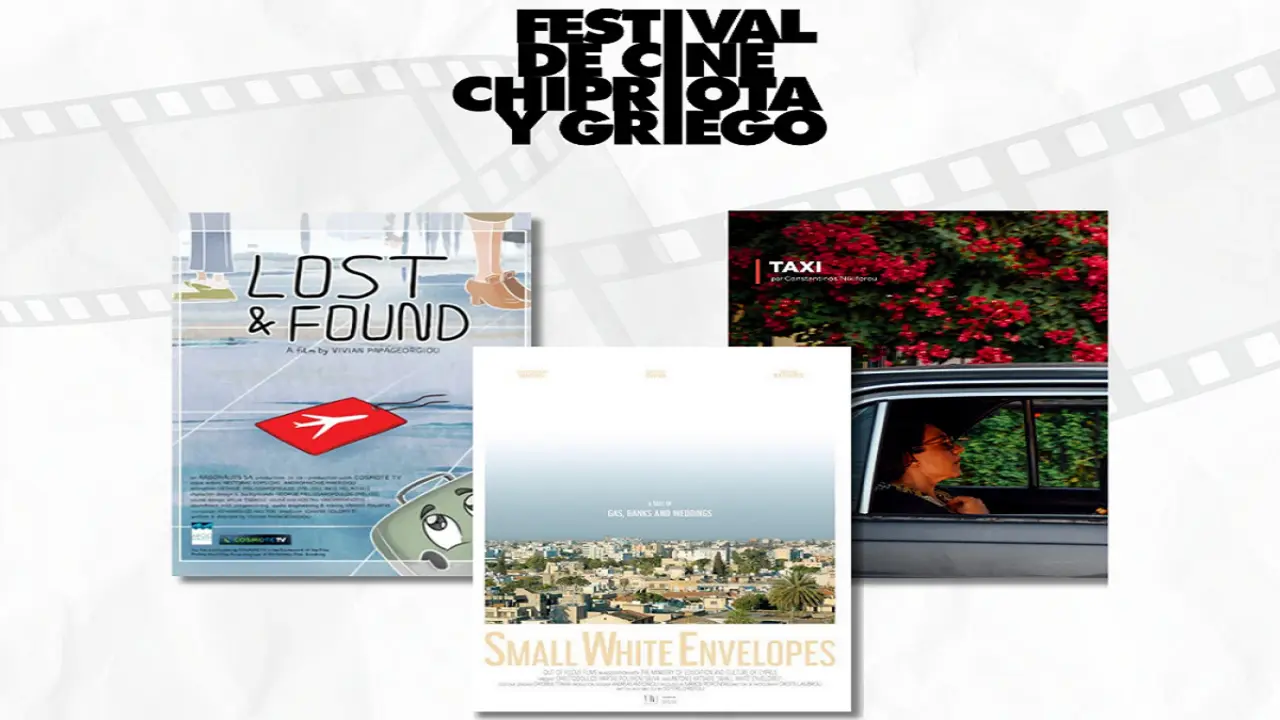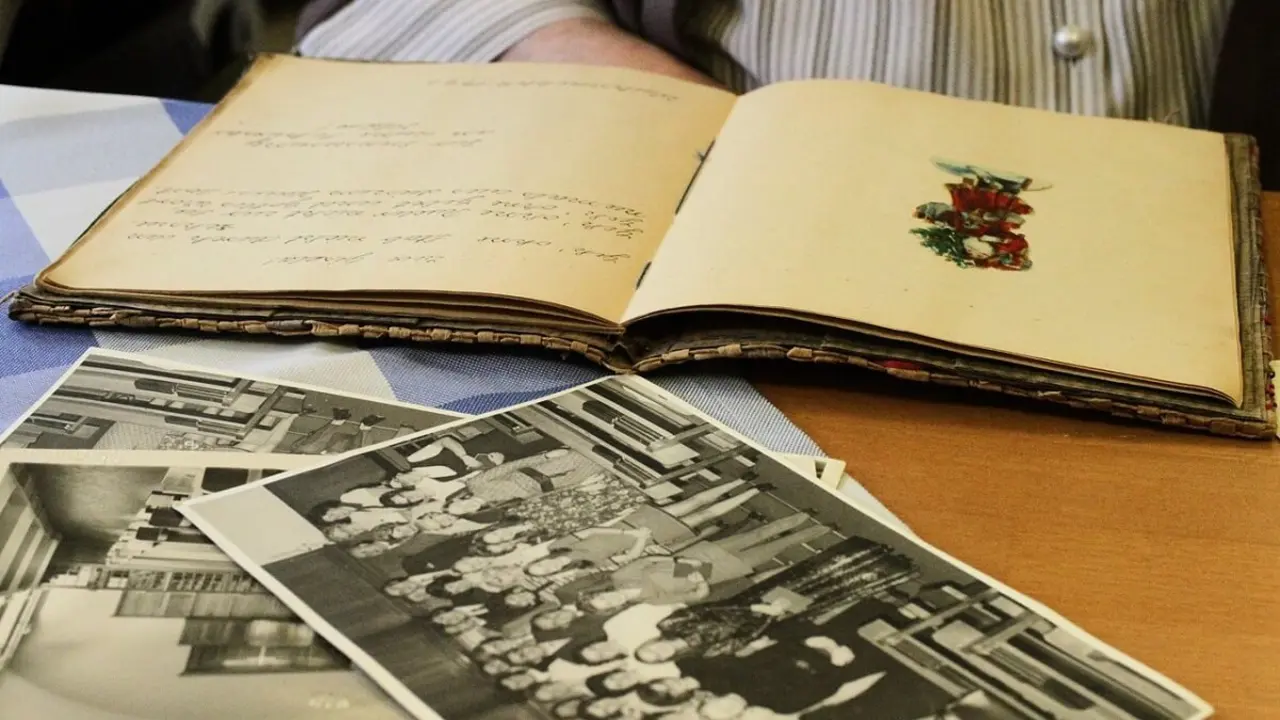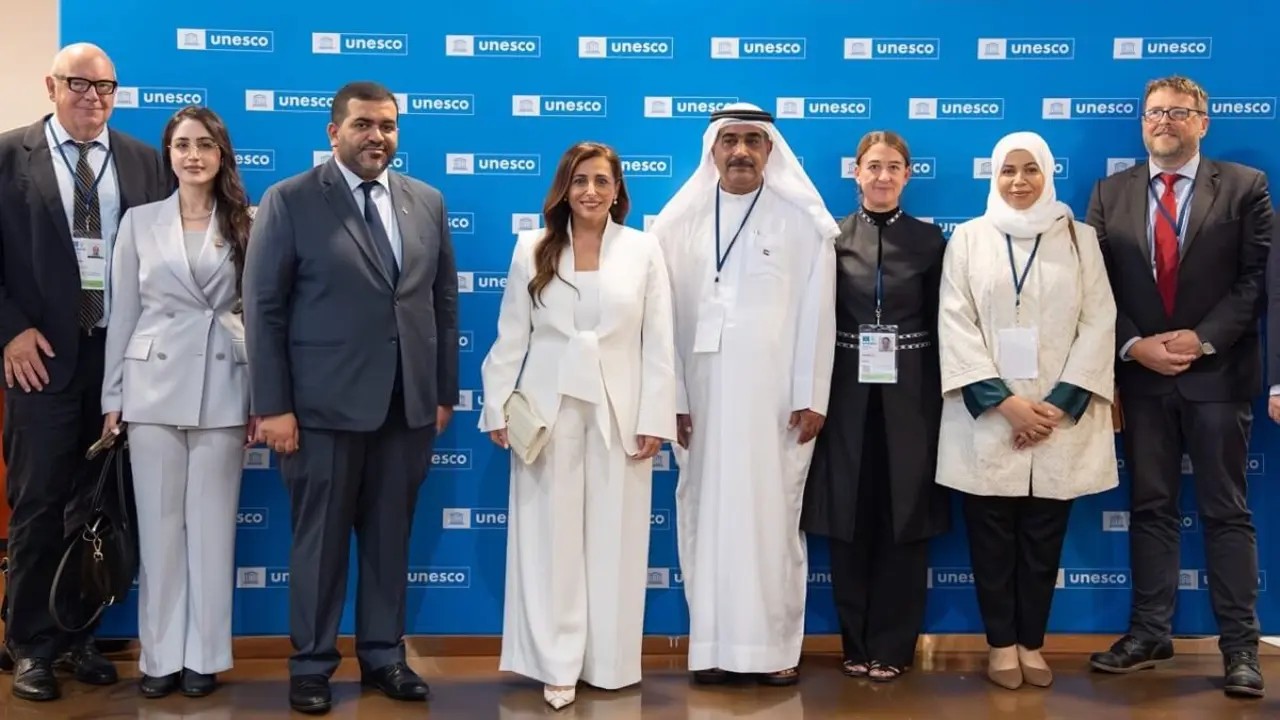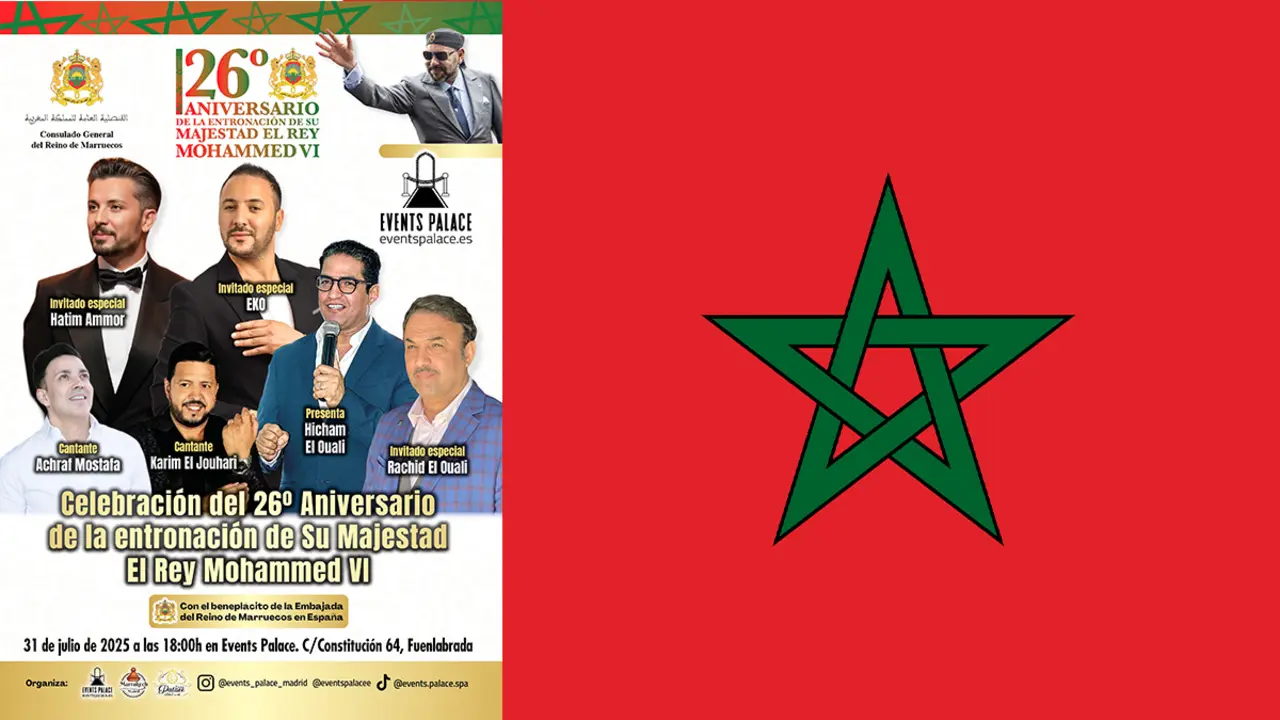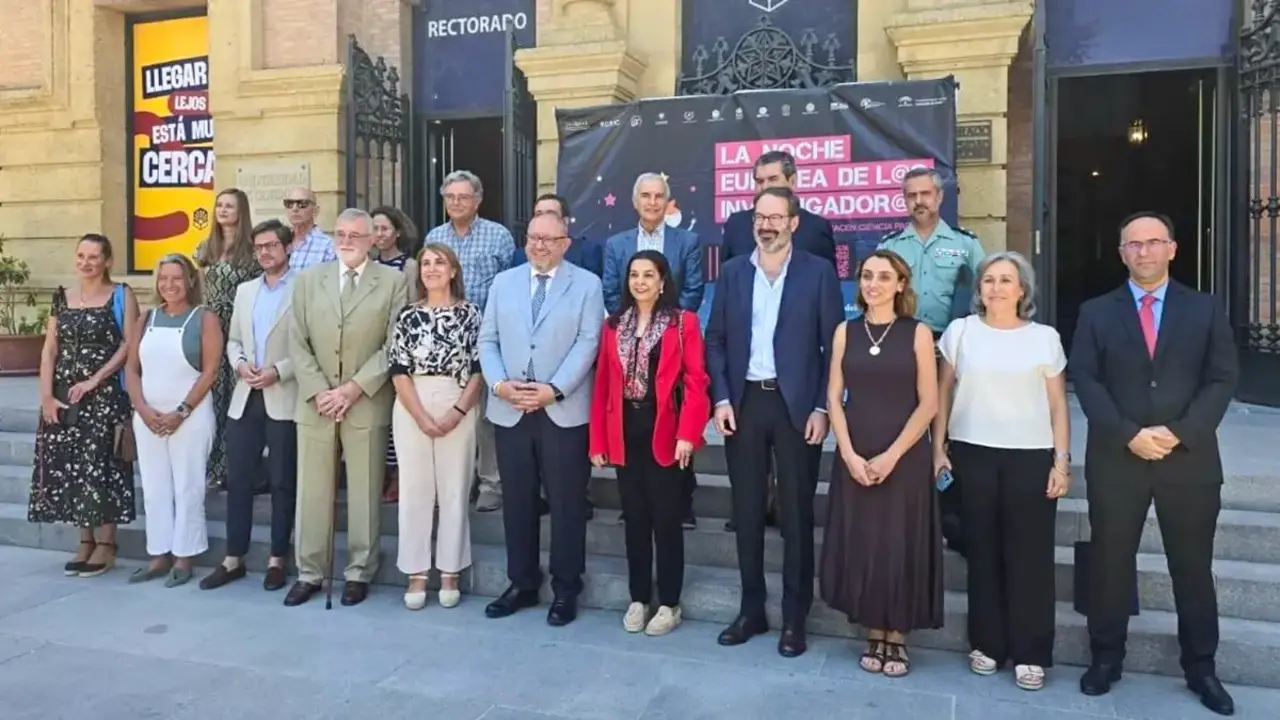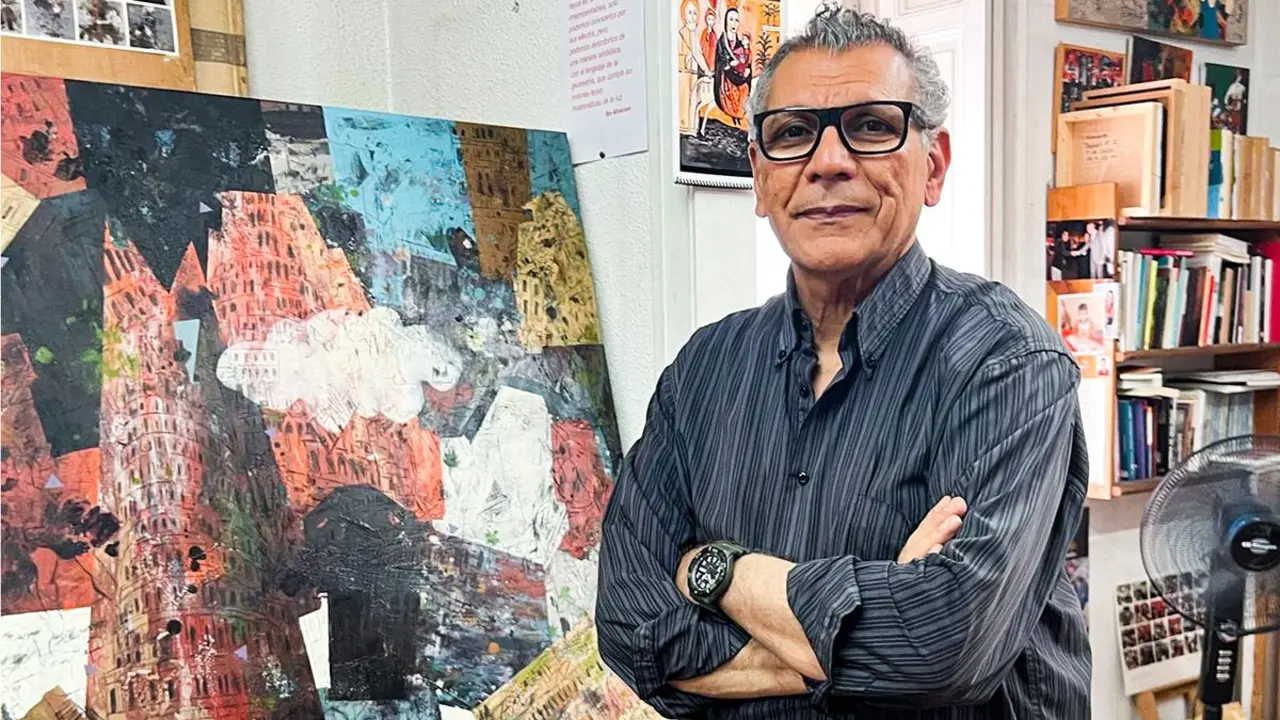The President of the Andalusian Regional Government and the Rector of the International University of Andalusia preside over the 30th Anniversary of the UNIA
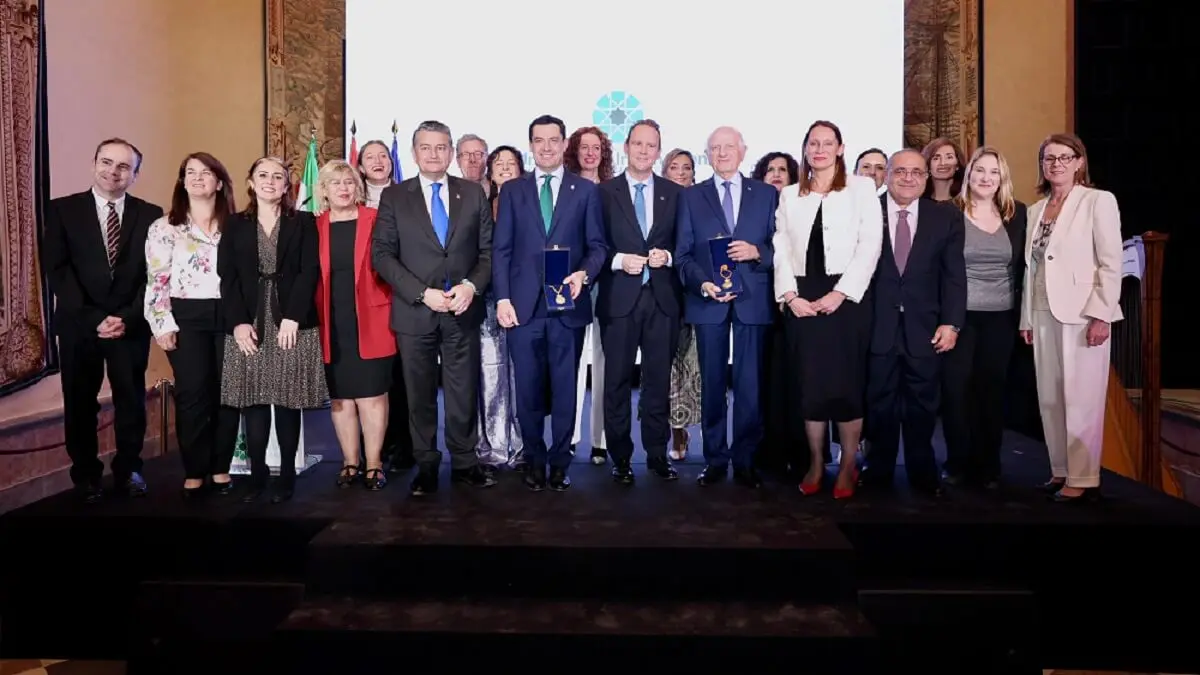
- Gold Medal to F3C
- University with projection towards the rest of the world
- The Andalusian Government's commitment to the UNIA
- Authorities and musical performances
The President of the Andalusian Regional Government, Juan Manuel Moreno, and the Rector of the International University of Andalusia (UNIA), José Ignacio García, presided over the Commemorative Act of the 30th Anniversary of this institution, which was held in the Hall of Tapestries of the Royal Alcazar of Seville. The event was attended by the advisor to H.M. Mohammed VI of Morocco, André Azoulay, and the Minister of the Presidency, Antonio Sanz, both co-presidents of the Board of Trustees of the Three Cultures Foundation, among other authorities.
During the event, the UNIA Gold Medal was awarded to the Three Cultures Foundation of the Mediterranean, which "recognises and values the historical alliance between the two institutions for more than two decades" and the UNIA Digital Prize was awarded to Laura Melgar, in recognition of the excellence of the research carried out in her doctoral thesis on the digital transformation of society.
The award winner thanked the recognition and commitment to young researchers in Andalusia thanks to initiatives such as these awards because, from her point of view, "to promote and encourage research is to bet on a better future for our society". And he commented that his research has been "always aimed at contributing value to society through data".
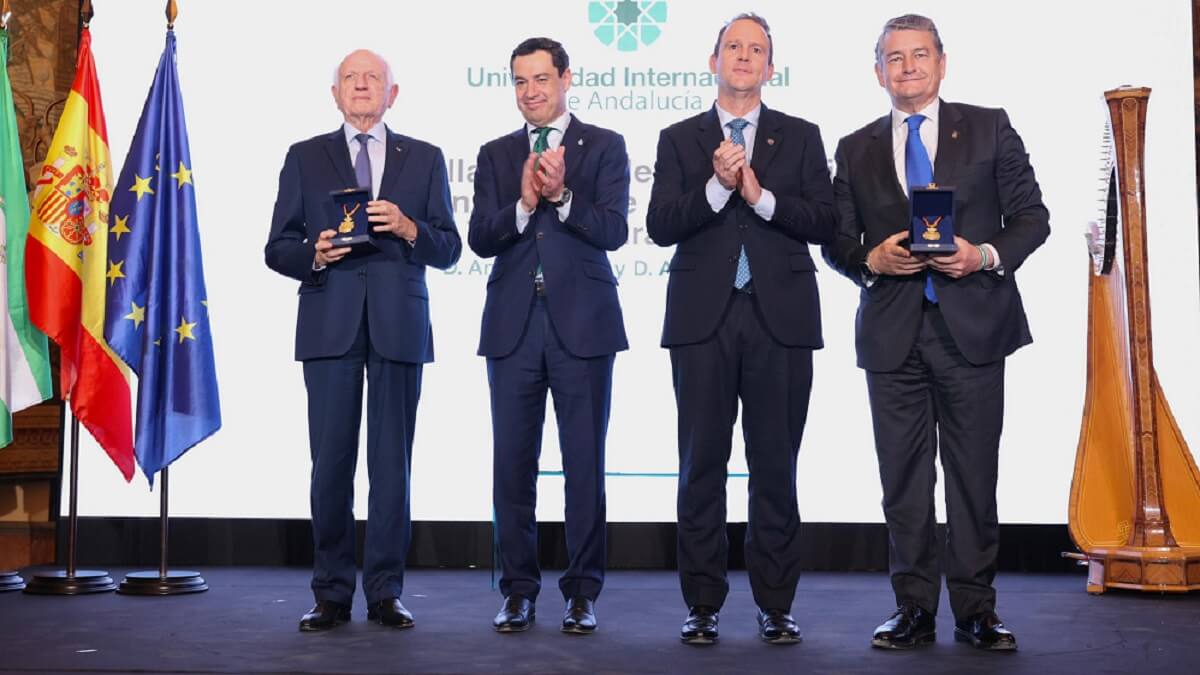
Gold Medal to F3C
The co-presidents of the Foundation, created 25 years ago as an instrument of cooperation to promote values such as peace, tolerance, human rights and dialogue, received the UNIA's highest distinction from the President of the Junta and the Rector. After the presentation, Sanz described the UNIA as "a key element in the Andalusian postgraduate education policy" and the foundation as "an institution of diplomacy within the framework of the strategy of cooperation, dialogue, consultation and consensus between Andalusia and Morocco".
For his part, Azoulay expressed "great emotion, gratitude and pride" for the recognition, even more so coming from the academic world at a time when, he said, "values such as otherness and respect are suffering resistance in the Mediterranean". "I am proud that Morocco is associated with Andalusia, because respect for others is in danger, despite the fact that diversity is the central driving force of modernity", he said, adding that "Andalusia has not given in to the temptation that is gaining ground, of exclusion and confrontation of our respective spiritualities, religions and civilisations".
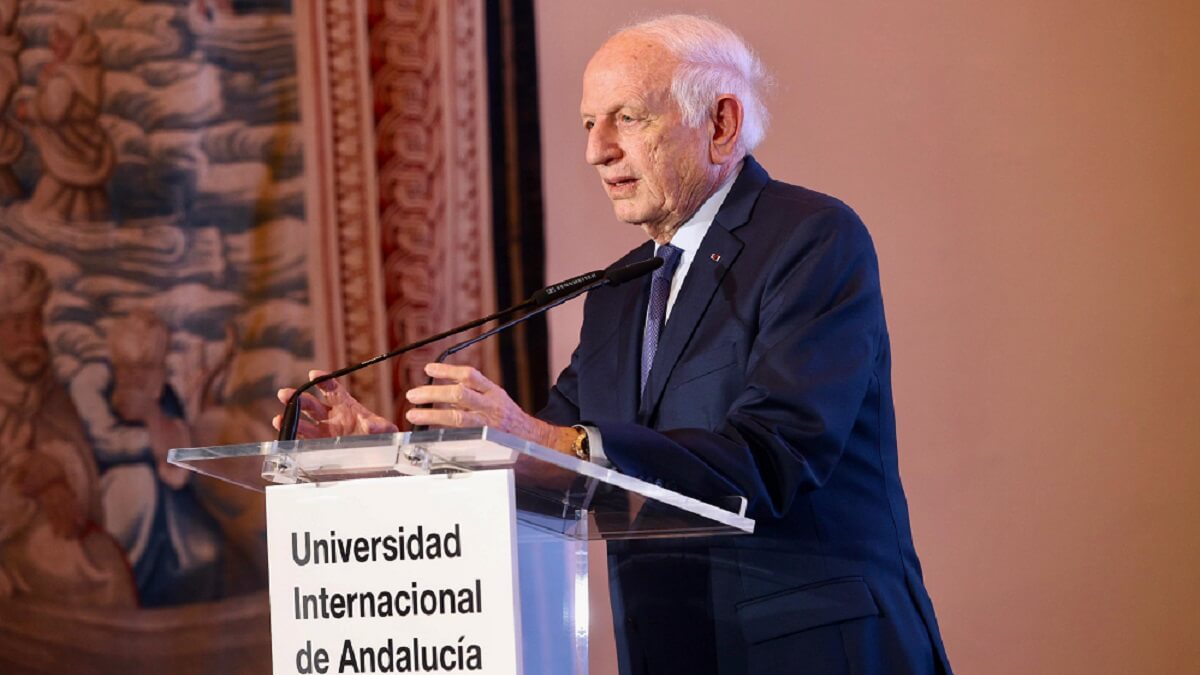
University with projection towards the rest of the world
The Rector of the UNIA began his speech by stating that: "Today is a very special day", to remember all the people who for three decades have had in the UNIA "their alma mater"; "more than 28,000 students have studied one of our postgraduate degrees during this time and, with the rest of the training and extension activities, there are more than 120,000. They are the true legacy of this University in its 30 years of life".
In this sense, he said that "the success of this time is not thanks to this rector, nor to those who preceded me, professors José María Martín Delgado, Juan Manuel Suárez Japón, Eugenio Domínguez Vilches and José Sánchez Maldonado; but to the staff of the house, the teachers and the alliances, since we are a university that was born to cooperate with sister universities and with institutions and companies of this land, with which a special bond is forged, such as the one with the Three Cultures Foundation, which has motivated us to impose our Gold Medal on them".
He added that the UNIA is responding to current demands by transforming the Summer University into an institution for specialised postgraduate training, lifelong learning and updating of teaching staff, both for Andalusia and Spain, as well as for Latin American and Maghreb countries.
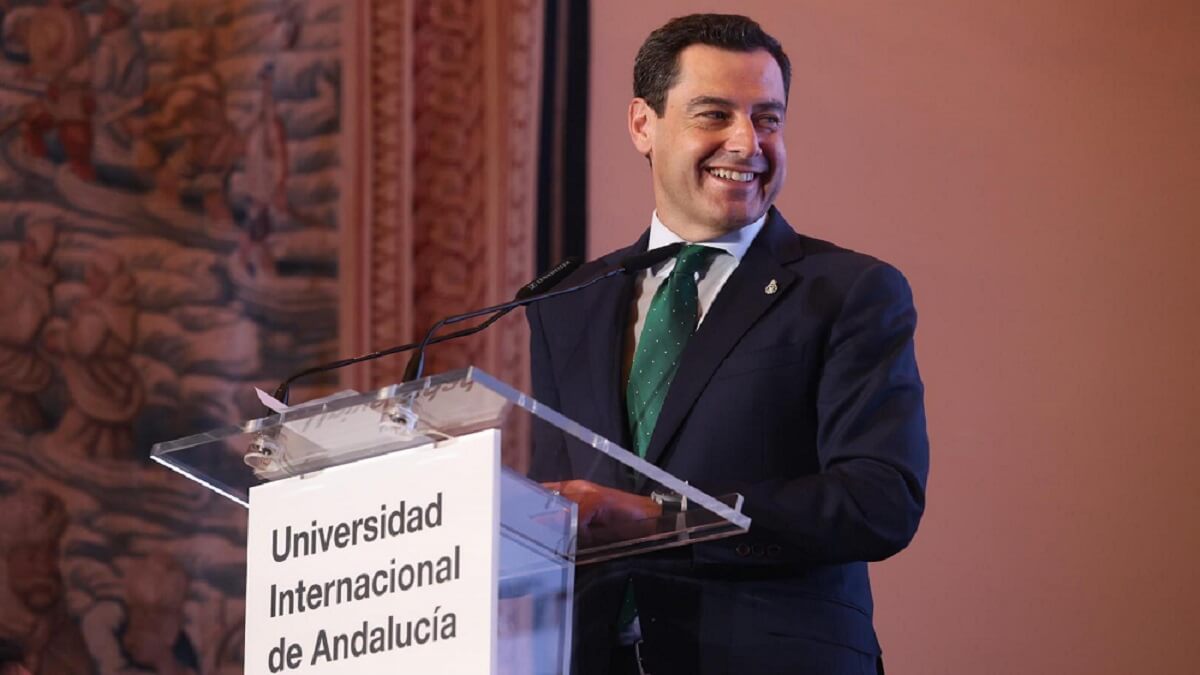
"In these 30 years, the International University of Andalusia has a solid structure, supported by its four campuses, and maintains an intense academic programme, which will grow ambitiously with nine new university masters, where Artificial Intelligence will be very present," explained the Rector, who indicated that the UNIA also addresses lifelong learning for professional retraining; generates meeting points for science and research, and promotes culture and innovation, especially teaching.
In his opinion, "the UNIA is more than ready to make a notable leap in quality and be increasingly useful and complementary to the Andalusian public system as a whole. And we are going to start by revolutionising the way we teach online with the eliA model, an innovative and essential tool to meet the expectations of those studying for a master's degree," García added, emphasising that "the future of Andalusia is digital; embracing the 4.0 Revolution; which is why digitalisation is a key part of our academic programme and where the UNIA-Digital Research Award, granted today to Laura Melgar, whose work is a source of pride for Andalusia, fits in".
Finally, he said: "We are the International; it is our main reason for being, as the UNIA is an instrument that connects all the potential of the Andalusian university system and projects it to the rest of the world" and added that La Rábida has to "be an obligatory stop" for those who have a relationship with the Ibero-American Knowledge Space.
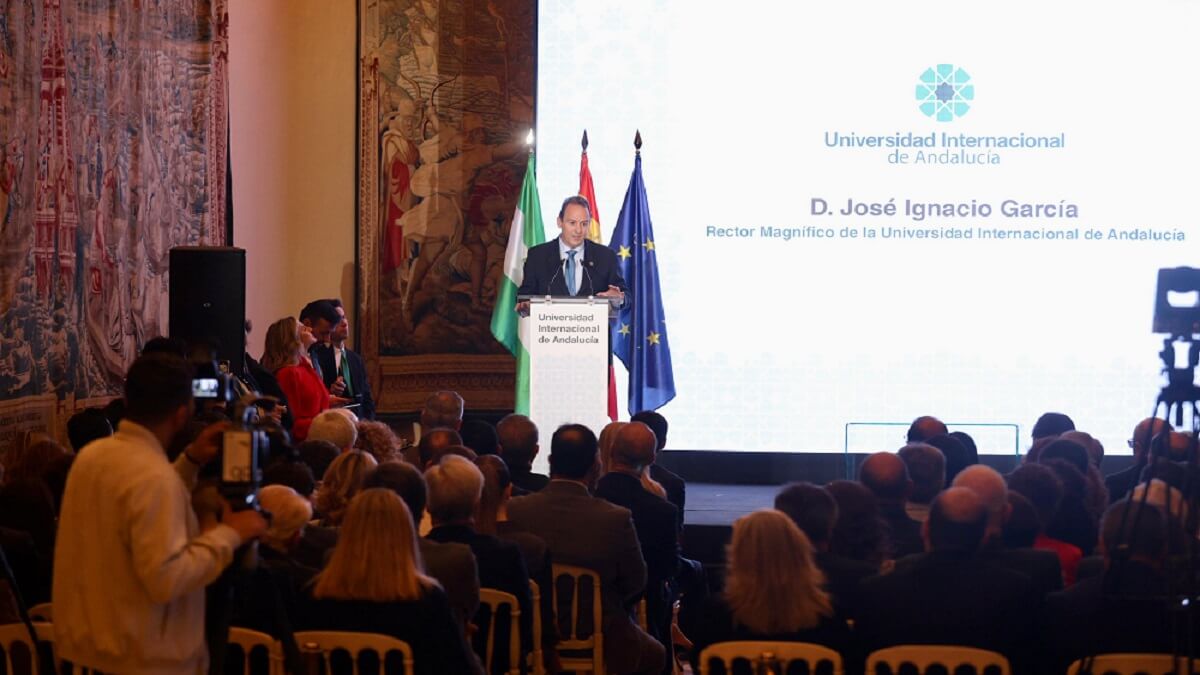
The Andalusian Government's commitment to the UNIA
The President of the Junta highlighted the fact that the UNIA is the fourth Spanish university with the highest proportion of international students, as nearly 40% of its more than 6,000 students come from Latin American countries and Morocco. He referred to the Strategic Plan, which envisages the creation of an Andalus-Maghreb Group of Universities, with a similar structure to the La Rábida Group of Latin American Universities, "to promote harmony, dialogue, understanding and peace between peoples".
According to Moreno, the UNIA was at its creation "an experiment, an adventure that has turned out very well; a laboratory that has managed to find its place in the world of higher education", emphasising the commitment of the Andalusian Government to this institution, "so that it continues to shine with its own light as a unique factory of knowledge and to assume the role of continuing to be a fertile nexus of union through knowledge".
During his speech, he announced that on Tuesday the Governing Council will approve the Extraordinary Investment and Infrastructure Plan for Andalusian Public Universities, which will apply to the 2024-2027 financial years and will allow actions financed with funds from transfers from the Junta that have not been executed up to a maximum of 20 million for each of those years, up to a maximum of 80 million.
He also stressed the commitment of the Andalusian Government to strengthen the role of the UNIA in the new University Law for Andalusia, "promoting its role as an essential element to project our public university system abroad and with the application of the new funding model for universities, for which it will receive more than 14 million euros".
At this point, he referred to the nine master's degrees of the UNIA that have been accepted within the new map of degrees, "where Artificial Intelligence and Big Data will be the main protagonists, in line with the innovative commitment that is being made from Andalusia".
With regard to the UNIA's recognition of the Three Cultures Foundation, he stressed that "both institutions represent the image that Andalusia wants to project in the world, of coexistence, dialogue, understanding and peace; based on tolerance and knowledge and on generating training spaces from which to promote progress in harmony where we can all achieve the greatest possible well-being".
Finally, he thanked the Moroccan king's advisor, stating that "his presence is very important for the Andalusian people, because it endorses and consolidates the path of cooperation opened between the Andalusian government and Morocco".
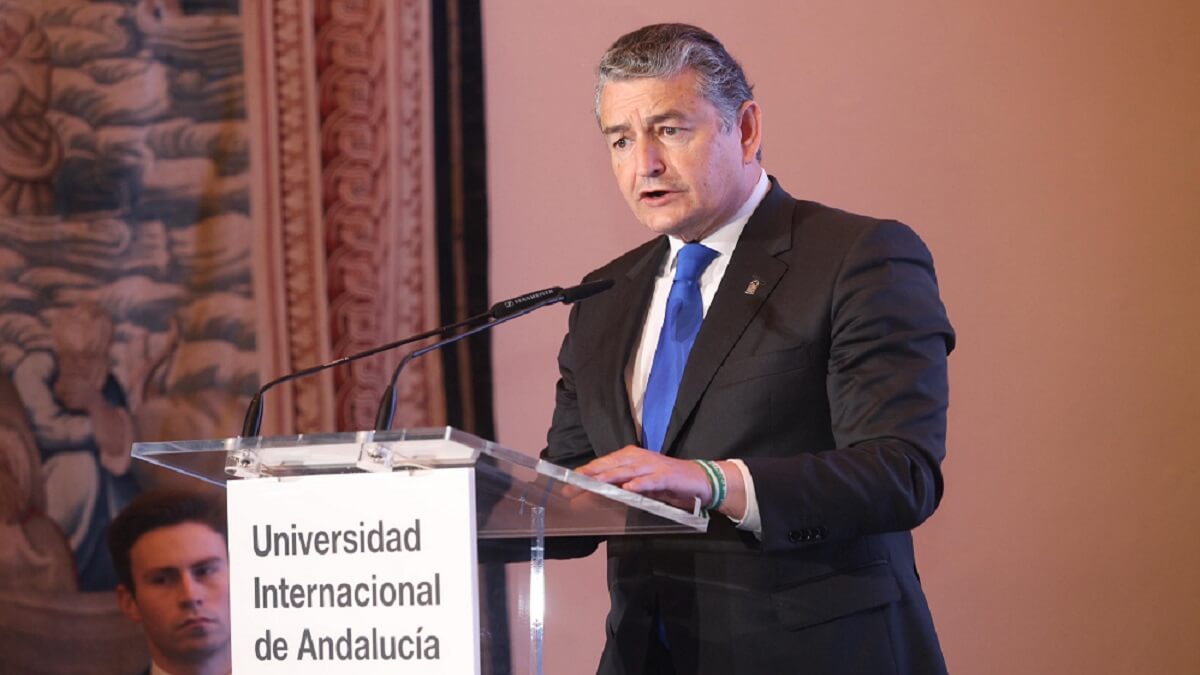
Authorities and musical performances
The event was attended by numerous authorities, such as the Ambassador of the Kingdom of Morocco in Spain, Karima Benyaich; the Andalusian Ministers of Educational Development and University, Patricia del Pozo and José Carlos Gómez Villamandos; the Director of the Three Cultures Foundation, Lorena García; the rectors of the Universities of Seville, Pablo de Olavide, Cordoba, Huelva and Granada, Miguel Ángel Castro, Francisco Oliva, Manuel Torralbo, Mª Antonia Peña and Pedro Mercado, respectively; the president of the Mohammed V University of Rabat, Farid El Bacha, and the lieutenant general commander of the Land Force, Carlos Melero.
The musical interpretations of "O mio babbino caro" and "Habanera" from the operas Gianni Schicchi (G. Puccini) and Carmen (G. Bizet) were given by the soprano Irene Román and the string trio composed of Luis María Roldán (violin), Juan Carlos Toribio (cello) and Ike Christine Zwaan (harp).

